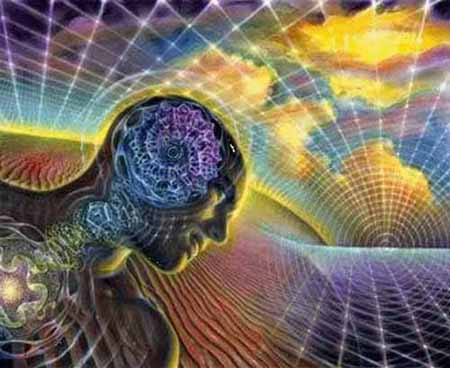

Precognition - to know something before it happens. If reality is a simulation comprised of consciousness grids then one needs to have the ability to move their physical consciousness into the grids to access information and bring it back to their current reality.
Precognition is linked with Time Travel as the concept of linear time does not exist beyond the physical limits of consciousness. Prophets, seers, visionaries, psychics, among others have been using this skill since the beginning of time. It's like anything else, once it activates, you are free to access it whenever, and most people do.
Precognitive dreams means the mind of the person moves into the grids of reality and experiences.

Brain Cells May Actually Try to Predict The Future During Sleep
Science Alert - June 9, 2024
The reason is - when focusing during out of body experiences - where linear time does not exist - traveling into what we call the future (grids) is easy. It's the ability to bring those events back to this timeline that's difficult for most people. We call it precognition meaning the purported psychic phenomenon of seeing, or otherwise becoming directly aware of, events in the future. Time is an illusion as is everything we experience in our simulation (virtual worlds).
We exist in the realm of "emotion as reality" where feelings make everything appear real when it fact it's all ones and zeroes and streaming consciousness. Humans require sleep to - relax the chatter, process, and reboot or reset their brain (bio-chemical computer). This can also be said of meditation which often results in sleep.
Precognition (from the Latin 'before,' + 'cognitio', acquiring 'knowledge'), also called future sight, refers to perception that involves the acquisition of future information that cannot be deduced from presently available and normally acquired sense-based information. The related terms, premonition and presentiment refer to information about future events that is perceived as emotions. The terms are usually used to denote a seemingly parapsychological or extrasensory process of perception, including clairvoyance. Psychological processes have also explained the phenomena.
As with other forms of extrasensory perception, the existence of precognition is not accepted by the scientific community, because no replicable demonstration has ever been achieved. Scientific investigation of extrasensory perception (ESP) is complicated by the definition which implies that the phenomena go against established principles of science.
Specifically, precognition would violate the principle that an effect cannot occur before its cause. However, there are established biases, affecting human memory and judgment of probability, that create convincing but false impressions of precognition.
Many of the "psychic experiences" that are volunteered to parapsychologists by the general population involve apparent precognition. In one review of a U.S. case collection, submitted to Duke University's Parapsychology Laboratory, 75% of 1777 dream-based experiences were of an ostensibly precognitive type, as were 60% of 1513 wakeful experiences. A similar pattern was identified for a separate collection of 157 cases experienced by children; here, the largest category of experiences was again of precognitive dreams (52%), followed by precognitive intuitions (52%).A German case collection produced a similar figure: 52% of 1,000 cases were of the apparently precognitive type. A British study of 300 volunteered cases showed 34% to be apparently precognitive. Read More